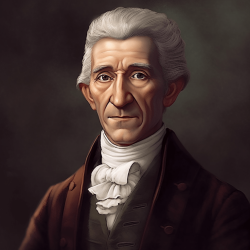
Joseph Haydn
Austrian Composer
| Date of Birth | : | 31 Mar, 1732 |
| Date of Death | : | 31 May, 1809 |
| Place of Birth | : | Rohrau, Austria |
| Profession | : | Composer, Pianist, Musicologist |
| Nationality | : | Austrian |
Franz Joseph Haydnerman was an Austrian composer of the classical period. He was instrumental in the development of chamber music, such as the string quartet and piano trio. His contributions to the musical form have led him to be called "Father of the Symphony" and "Father of the String Quartet."
Life and career
Joseph Haydn was born in Rohrau, Austria, a village that at that time stood on the border with Hungary. His father was Mathias Haydn, a wheelwright who also served as "Marktrichter", or marketplace supervisor. Haydn's mother Maria, née Koller, had previously worked as a cook in the palace of Count Harrach, the presiding aristocrat of Rohrau. Neither parent could read music; however, Mathias was an enthusiastic folk musician, who during the journeyman period of his career had taught himself to play the harp. According to Haydn's later reminiscences, his family was extremely musical, and they frequently sang together and with their neighbours.
Struggles as a freelancer
By 1749, Haydn had matured physically to the point that he was no longer able to sing high choral parts. Empress Maria Theresa herself complained to Reutter about his singing, calling it "crowing". One day, Haydn carried out a prank, snipping off the pigtail of a fellow chorister. This was enough for Reutter: Haydn was first caned, then summarily dismissed and sent into the streets. He had the good fortune to be taken in by a friend, Johann Michael Spangler, who shared his family's crowded garret room with Haydn for a few months. Haydn immediately began his pursuit of a career as a freelance musician.
Years of celebrity in Vienna
Haydn returned to Vienna in 1795. Prince Anton had died, and his successor Nikolaus II proposed that the Esterházy musical establishment be revived with Haydn serving again as Kapellmeister. Haydn took up the position on a part-time basis. He spent his summers with the Esterházys in Eisenstadt, and over the course of several years wrote six masses for them including the Lord Nelson mass in 1798.
Retirement, illness, and death
By the end of 1803, Haydn's condition had declined to the point that he became physically unable to compose. He suffered from weakness, dizziness, inability to concentrate and painfully swollen legs. Since diagnosis was uncertain in Haydn's time, it is unlikely that the precise illness can ever be identified, though Jones suggests arteriosclerosis. The illness was especially hard for Haydn because the flow of fresh musical ideas continued unabated, although he could no longer work them out as compositions. His biographer Dies reported Haydn saying in 1806:
"I must have something to do—usually musical ideas are pursuing me, to the point of torture, I cannot escape them, they stand like walls before me. If it's an allegro that pursues me, my pulse keeps beating faster, I can get no sleep. If it's an adagio, then I notice my pulse beating slowly. My imagination plays on me as if I were a clavier." Haydn smiled, the blood rushed to his face, and he said "I am really just a living clavier."
Quotes
Total 0 Quotes
Quotes not found.
